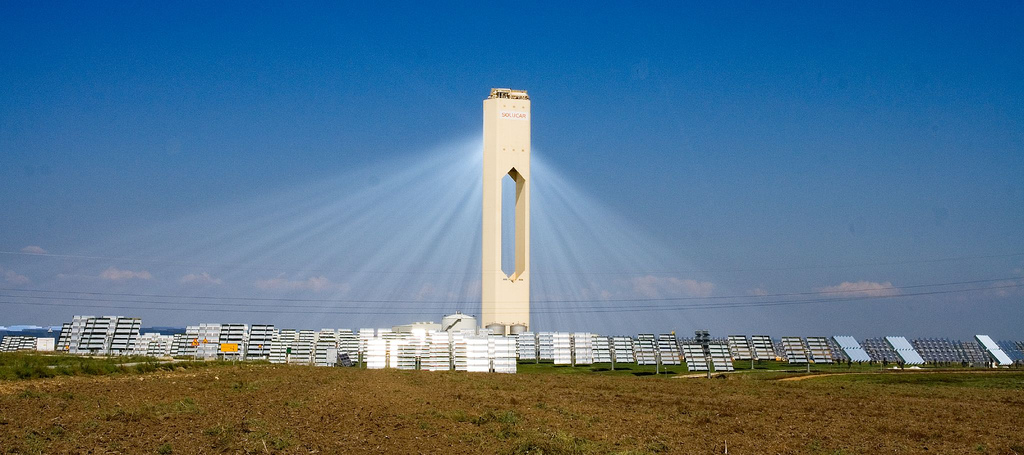Problem
Solar towers use many mirrors to concentrate sun light on a central, tower-mounted receiver. The receiver then transfers the resulting heat to a fluid (i.e. molten salt or air) that, in turn, exchanges the heat to steam which powers a turbine, generating electricity. The placement of the mirrors may lead to individual mirrors being blocked and shaded; this affects the efficiency (and therefore costs) of the power plant. The model is later used for an optimisation process which finds the most efficient arrangement of mirrors.
A similiar problem is given by offshore wind parks, where an optimal placement of wind turbines is wanted, such that the turbines are not placed in the wind shadow of each other.
Preliminary work
To some extent, the above described models are implemented with a C++ code. Also an optimizer (genetic algorithm) was written, which optimizes the positions of the heliostats/offshore wind turbines. And finally the code is presented as web application on http://www.solar.rwth-aachen.de/ in an alpha stage of development (as you can see).
Task
Within this practical course three problems are offered, each will be solved by a group of two or three students:
- Improving the solar tower model (Requirements: C++)
- Development of new global optimizers for optimal cabling of offshore turbines
- Improving the optimizer with algorithmic differentiation (Requirements: C++, Lecture ‘Computational Differentiation’ from Prof. Uwe Naumann)
- Further development of the web application (Requirements: html, php, Polymer, WebGL)
Requirements
As indicated above, different groups need different skills. They are not obligatory but helpful. If you apply for this practical course please state your knowledge in C++, html, php, Polymer, WebGL and AD (Algorithmic Differentiation), and please state in which field (modelling, optimization, algorithmic differentiation, web application) you are interested the most. If you already have a favourite partner, please indicate him/her, such that we could select you both during the registration process.
Contact
This project is a corporation of the Theory of Hybrid Systems (i2) research group headed by Prof. Dr. Erika Ábrahám, and the research group headed by Prof. Dr. Martin Frank of MathCCES. The project will be co-supervised by Pascal Richter. For further questions please contact Pascal Richter.

